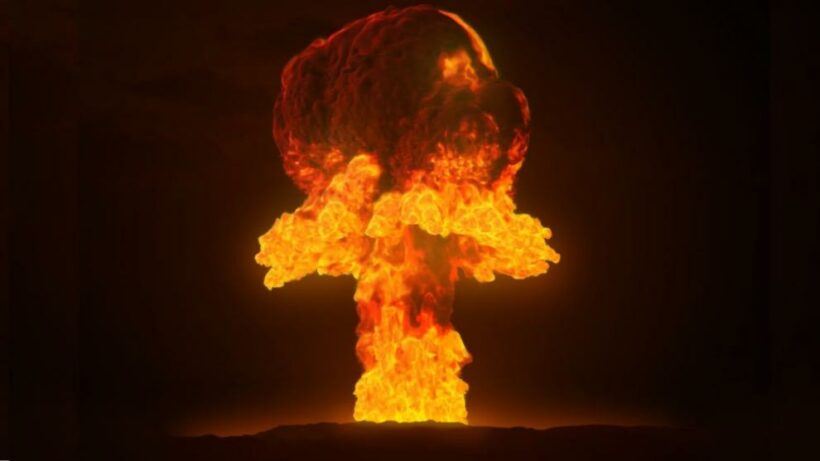Achieving global nuclear disarmament is one of the oldest goals of the United Nations, being the central theme of the first resolution passed by the General Assembly in 1946, and has been part of its agenda since 1959, along with complete general disarmament. In 2013, the UN General Assembly declared 26 September as the International Day for the Total Elimination of Nuclear Weapons. It is an issue that has always enjoyed the declamatory interest and support of all UN Secretaries General.
In 1945, Hiroshima and Nagasaki were bombed with nuclear weapons, showing the world a horror it had never known before. Today, 77 years afterwards, there are 9 nuclear weapons states: the United States, Russia, China, France and the United Kingdom recognised as “nuclear weapons states” in the NPT (Nuclear Non-Proliferation Treaty), based on the date of their first nuclear test. There are 4 other nuclear weapon states that are not party to the NPT: Israel, India, Pakistan and North Korea.
In addition, 5 other states harbour US nuclear weapons: Germany, Italy, Belgium, the Netherlands and Turkey. Between them, the latest estimate is that there are some 13,000 nuclear weapons. There have been numerous reports over the last decade on the humanitarian impacts of nuclear weapons.
In addition, investment in new and increasingly sophisticated weaponry is increasing at economic levels never before reached. This year the first meeting of the States Parties to the Treaty on the Prohibition of Nuclear Weapons (NPT) adopted the “Vienna Declaration”, which reaffirms the determination to achieve the complete elimination of nuclear weapons. In addition, the “Vienna Plan of Action” was adopted to facilitate the effective and timely implementation of the Treaty and its objectives and goals.
The Tenth Review Conference of the Treaty on the Non-Proliferation of Nuclear Weapons (NPT) was held at the UN Headquarters in New York from 1 to 26 August 2022.
After four weeks of intense debate, the Tenth Conference ended without a final document because Russia objected to a text questioning Russian control of Ukrainian nuclear facilities. At around the same time Liz Truss, the current UK prime minister, said she is “prepared to press the nuclear button” as part of her government’s administration, regardless of the fact that it could mean “global annihilation”.
Tony Robinson, humanist and activist for peace and non-violence, stated in the discussion we broadcast last August on the 77th anniversary of the Hiroshima genocide, that “…a campaign launched by ICAN, and supported https://www.internationalhumanistparty.org equipocoordinadorphi@gmail.com by a number of key countries at the forefront of disarmament, to explicitly ban nuclear weapons resulted in a new treaty called the Treaty on the Prohibition of Nuclear Weapons (CTBT), which explicitly bans nuclear weapons for the first time in the history of the world…” and explicitly prohibits the weapons for the first time in international law, although that prohibited status could already be deduced from other areas of international law such as humanitarian law and environmental law. Today, 60 states are parties to it, 26 others have signed it, and a further 36 countries approved the text when it was adopted by the UN.
But the NPT does not have the support of any of the governments of the nuclear weapons states, nor of the NATO states and other military alliances”.
Evidently from the values and interests of the political establishment and the Military Industrial Complex the picture is highly alarming and dangerous.
The doctrine of nuclear deterrence is sustained under the threat of devastating mutual destruction, between countries with large numbers of nuclear weapons, which would bring the human species to the brink of extinction.
Silo, founder of the Humanist Movement in which we warned… “To avoid future atomic catastrophe, we must work to overcome violence: Withdraw invading troops, return occupied territories and dismantle arsenals. These are the urgencies of the moment. This is the cause of courageous women and men”.
This message has absolute relevance today. People want to live in peace and want resources to be invested for their benefit, not for their possible destruction.
And on 18 November 2009 at the Nobel Peace Prize Summit in Berlin, Germany, he said: “The urgent thing is to create consciousness for peace and disarmament. But it is also necessary to awaken the consciousness of Active Nonviolence that allows us to reject not only physical violence, but also all forms of economic, racial, psychological, religious and gender-based violence. Of course, we hope that this new sensibility can take root and shake social structures, opening the way for the future Universal Human Nation”.
Humanists know that it is civil society throughout the world that must build a popular power that with FORCE expresses its desire for peace and its support for nuclear disarmament NOW! Without this people’s power we do not see it possible to change the destructive course of events.






